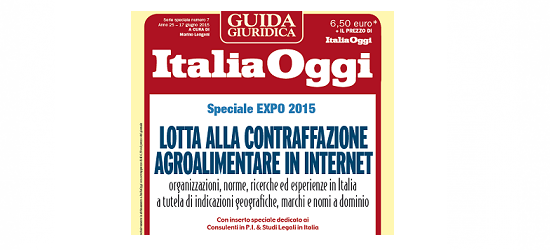
Silvia Magelli, Lawyer – Magelli Law Firm, Professor at Parma University
In the area of Parma agri-food sector operators have developed a processing method for high quality food (typical products with PDO and PGI protections) and highly renowned, prestigious and innovative standardised products (not touched by financial difficulties). The notoriety gained with a number of products that have been successful thanks to their taste, genuineness and organoleptic properties (such as “Prosciutto di Parma” ham and “Parmigiano Reggiano” cheese) and with several non-traditional products associated with Parma has also established the name in markets precluded to products like ham but reachable with biscuits and yoghurt. The synergies of companies of alimentary products and of installations for them have consolidated and strengthened the name, while sophisticated advertising drawing on artistic and cultural heritage has increased the attractiveness, communicating an appeal that promotes “goodness” and a superior cultural tradition. The name of Parma in the agri-food sector now enjoys quite a reputation. Therefore, protection is often necessary: in fact, an element of subtle parasitism has emerged, aiming at exploiting such credibility and attractiveness, causing serious damage to local companies.
That is how Parmalimentare was set up, an organisation and a mark that aims at enhancing and protecting the goods produced by the food industry in the province of Parma. And the initiative proved to be a valuable instrument to protect the collective value of the name. A case with a happy conclusion is particularly significant and needs to be mentioned. The conduct of a food company that had registered and was using figurative marks with the wording “ALIPARMA” for heterogeneous food products in terms of origins and characteristics was declared unlawful. The claim of that company was based on the fact that the products it was marketing were not the “typical” ones of Parma area, the place of packaging had been specified (different from Parma, just as that of production), and the prefix “ALI” was descriptive of the “food” sector, but not in competition with Parmalimentare. Once Parmalimentare’s right to take legal action in order to prevent misleading uses of the Aliparma mark was recognized, it was stated that an unlawful “deceptive attitude” can be found whenever a geographical name is used in order to unduly “gain” from the appealing evocation of elements referable to the same place, but unrelated to the product: so the latter is “falsely” identified in a manner that is likely to create confusion in the public, with regard to its quality and origin. In such cases, the resulting “message” does not have the function of correctly identifying a specific product offered to the public, but rather aims at enriching the “sign” through a commodity content that is inexistent, since it may determine a distorted choice in the potential clients. Moreover, the unlawful conduct of the company became evident from the intention to win the favour of the public by depicting itself as the bearer of a background connected with Parma area, which in fact it considered prestigious. Given the “deceptive” purpose underlying the choice of the name used as a means for an illicit commercial practice, the nullity of all the mark names containing the word “Aliparma”, alone or with other elements, followed, together with a prohibition of use (Court of Appeal of Bologna, no. 1702/2013). With similar signs, there was a risk of confusion for the public, since the commodity sectors could be considered as “similar“, as to the content of the “indirect needs” they were aimed at satisfying. Such protection is valuable, because the usual manner of internet-based product promotion allows reaching groups of consumers who are unaware of the connection between many products and the know-how of the area they originated from. The parasitic association with the specificity of a district appears unlawful and the legal protection may be based on Articles 20 and 122 of the Industrial Property Code and 2601 of the Italian Civil Code.
